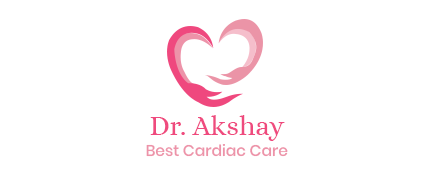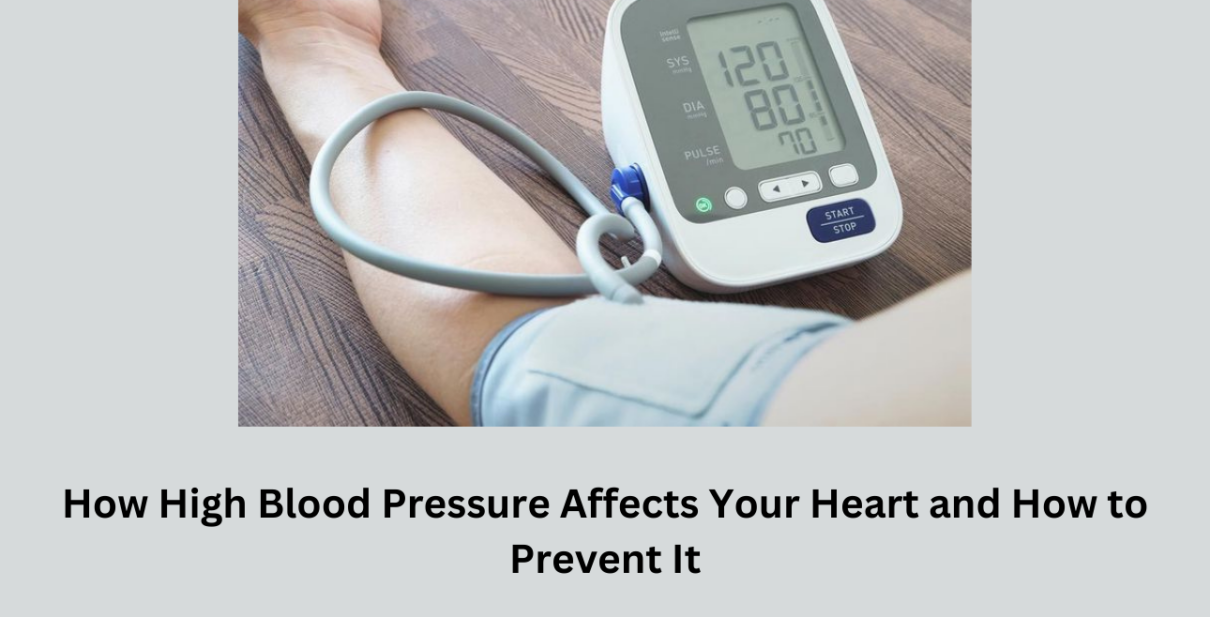High blood pressure, also known as hypertension, is one of the most common yet silent killers affecting millions of people worldwide. Often referred to as a “silent” condition because it shows few symptoms, high blood pressure can quietly damage the heart and cardiovascular system over time. Left uncontrolled, it can cause major heart issues, including heart attack, stroke, and heart failure. But if caught early and appropriate lifestyle modifications are made, high blood pressure can be controlled, and its effects on your heart can be minimized.
What is High Blood Pressure?
Blood pressure: The force of blood against your arteries’ walls when your heart pumps it around your body. Measured in millimeters of mercury (mmHg); it has two numbers: Diastolic pressure is measured when your heart is between beats and at rest, whereas systolic pressure is the number measured when your heart actually beats.
A normal blood pressure reading usually reads at 120/80 mmHg. Hypertension is diagnosed when blood pressure readings exceed 140/90 mmHg on a regular basis. High blood pressure is a serious condition that may cause damage to the heart, blood vessels, and other organs, which may eventually lead to complications such as heart disease and stroke.
How High Blood Pressure Affects Your Heart
Over time, high blood pressure puts more stress on the heart and the arteries that carry blood throughout the body.
How High Blood Pressure Impacts Your Heart:
1. Thickening of the Heart Muscles
When the heart is under pressure to pump blood through narrowed or stiffened arteries due to high blood pressure, the heart muscles thicken. This condition is known as left ventricular hypertrophy (LVH), where the heart’s left ventricle becomes thicker. The thickened heart muscle decreases the efficiency of the heart and can cause heart failure.
2. Damage to the Arteries
High blood pressure makes the arteries stiffen and lose their elasticity. The forceful flow of blood can damage the inner lining of the blood vessels, causing them to narrow and harden over time. This narrowing increases the risk of atherosclerosis (plaque buildup in the arteries), which further limits blood flow to the heart and other vital organs.
3. Risk of Heart Attack and Stroke
The increased pressure within the arteries from hypertension can cause the formation of blood clots. If a clot forms in a narrowed artery, it can block blood flow to the heart or brain, resulting in a heart attack or stroke. Moreover, the weakened blood vessels may rupture, causing internal bleeding and damage to the organs.
4. Heart Failure
Over time, the constant strain of high blood pressure can weaken the heart and make it less effective at pumping blood, which eventually leads to heart failure. Heart failure is a condition wherein the heart cannot pump enough blood to meet the body’s needs, causing fatigue, shortness of breath, and swelling in the legs and abdomen.
Risk Factors for High Blood Pressure
Several conditions can lead to the onset of hypertension. While some are not under control, many others are controllable through lifestyle adjustments:
Age: Age: The likelihood of developing hypertension grows as you age.
Family History: If you come from a family history with close relatives having high blood pressure, then you are most likely to develop it.
Poor Diet: Diets that are high in sodium and contain processed foods and low levels of potassium increase blood pressure.
Physical Inactivity: Not taking part in regular exercises and lack of physical activities leads to high blood pressure.
Obesity: Taking more weight puts pressure on the heart and can lead to hypertension.
Overconsumption of Alcohol: Too much drinking of alcohol leads to an elevation of blood pressure.
Smoke: The smoking of cigarette causes narrowing of blood vessels, leading to increased tension of blood.
Chronic Stress: High tension of the blood caused by stress can rise for some time.
How to Prevent High Blood Pressure
While some risk factors for high blood pressure, such as age and genetics, are out of your control, lifestyle changes can significantly reduce the risk of hypertension and improve your heart health. Here are some proven strategies to help prevent high blood pressure:
1. Eat a Heart-Healthy Diet
A well-balanced diet can have a significant impact on controlling blood pressure. Focus on:
Reduce sodium: Be careful not to consume too much salt in your diet, as excess salt raises blood pressure.
Increase potassium: Consume fruits and vegetables that are also rich in potassium, for example bananas, spinach, or sweet potatoes, to help even out the effects of salt.
Increased consumption of fruits and vegetables: Fruits and vegetables are high in necessary vitamins, minerals, and fibers.
Reduction of saturated fats and cholesterol: Go for lean proteins, the healthy fats from avocados, nuts, etc., and whole grains.
- Exercise Regularly
Exercise regularly to maintain an appropriate weight and reduce blood pressure. Make sure to do at least 150 minutes of moderate-intensity aerobic exercise, which includes brisk walking, swimming, cycling, or other sports. Exercising makes your heart stronger, improves the circulation, and keeps blood vessels flexible.3. Maintain a Healthy Weight
Being overweight or obese will increase the workload on the heart, which in turn increases blood pressure. Even a small loss of weight can help reduce the blood pressure and decrease the risk of heart disease.4. Reduce Alcohol Intake and Quit Smoking
Smoking and excessive alcohol consumption have been identified as causes of high blood pressure. Avoiding alcohol and quitting smoking will greatly improve heart health and lower the risk of hypertension. - Stress Management
Chronic stress can lead to temporary increases in blood pressure. Engaging in relaxation techniques like deep breathing, meditation, yoga, or mindfulness can help lower stress levels.6. Monitor Your Blood Pressure
Regularly check your blood pressure, especially if you have risk factors. Home monitoring devices are widely available, and routine checks by a healthcare provider are essential in managing hypertension early. - Take Medications as Prescribed
If your blood pressure is high, your doctor may recommend medication to help lower it. Follow your healthcare provider’s instructions carefully and keep your follow-up appointments to monitor your progress.
Conclusion
High blood pressure is a serious condition that can significantly impact your heart and overall health. By adopting simple yet effective lifestyle changes, such as eating a heart-healthy diet, staying active, managing stress, and avoiding smoking and excessive alcohol, you can lower your risk of hypertension and safeguard your heart. Regular check-ups and blood pressure monitoring are essential for early detection and management.
For personalized heart care, consult Dr. Akshay Kashid, a renowned cardiologist specialist in Baner, Pune. His expertise and guidance can help you manage your heart health effectively and prevent complications associated with high blood pressure.



